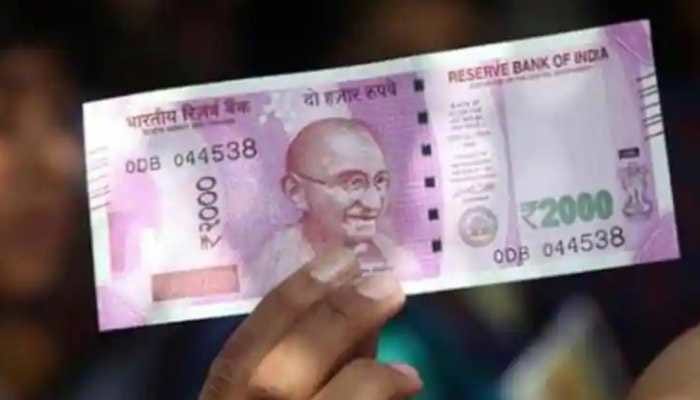
Banks in India have commenced the process of accepting Rs 2,000 notes for exchange starting today (Tuesday). The Reserve Bank of India (RBI) made an announcement on May 19 to withdraw the Rs 2,000 denomination from circulation, providing the banks with a four-day window to prepare for the implementation.
These notes were initially introduced in 2016 following the government’s decision to demonetize the old Rs 500 and Rs 1,000 currency notes.
Although the government introduced a new design for the Rs 500 note, the Rs 1,000 note was not reintroduced into circulation. While there were speculations about the potential demonetization of the Rs 2,000 note as well, the RBI clarified that it would only be withdrawing these currency notes from the market.
- Avoid rushing to the banks and stay calm. There is no need to panic as the Rs 2,000 currency notes continue to be legal tender according to the Reserve Bank of India (RBI). While there is a deadline of September 30 for exchanging notes in batches of 10, the RBI has clarified that the currency can still be used for commercial purposes even after the deadline. RBI Governor Shaktikanta Das stated, “It will continue as legal tender. We will wait to see how many notes are coming. I cannot speculate on what will happen post-September 30.”
- No limit on deposits. Contrary to the exchange limit of 10 notes at once, there is no maximum limit for depositing Rs 2,000 notes. However, for significant deposit transactions, it is necessary to comply with the Know Your Customer (KYC) guidelines.
- No documents required for deposits below Rs 50,000. Deposits below Rs 50,000 do not require any additional documents. Governor Das explained, “We have not introduced any additional procedures. It is important to note that there is an income tax rule which requires you to provide your PAN if you deposit cash exceeding Rs 50,000. So the existing rules will apply.”
- No requisition slip needed for transactions involving up to 10 currency notes. The State Bank of India has announced that the public can exchange Rs 2,000 notes up to a limit of Rs 20,000 without obtaining a requisition slip.
- Measures to facilitate the exchange process. The RBI has instructed banks to set up sheds to provide protection from sunlight for individuals coming to exchange or deposit notes. Additionally, arrangements should be made for drinking water for people waiting in queues. Banks have been advised to make note exchange services available over the counter in the usual manner.
- According to RBI Governor Shaktikanta Das, the withdrawal of Rs 2,000 notes from circulation will have a minimal impact on the economy as these notes account for only 10.8% of the total currency in circulation. It is expected that a significant portion of the Rs 2,000 notes will be returned to the banking system by September 30.
- Banks have sufficient quantities of notes of various denominations. The RBI has reassured that an abundant supply of printed notes is available not only with the RBI but also at the currency chests operated by banks. Governor Das stated, “There is no reason to worry whatsoever. We have more than sufficient stocks.”
- Possible relaxations for individuals residing abroad. The RBI acknowledges the challenges faced by people on extended foreign visits or those living abroad on work visas. Governor Das indicated that efforts will be made to address such difficulties and ensure a smooth process. Special exemptions may be provided for those with legitimate reasons for not being able to exchange the currency notes, particularly after September 30.
- Printing of Rs 2,000 notes ceased in 2019. It is true that the Reserve Bank of India halted the printing of Rs 2,000 denomination currency notes since April 2019.
- Implementation of the Clean Note Policy. The withdrawal of Rs 2,000 currency notes aligns with the RBI’s Clean Note Policy. This policy aims to provide the public with high-quality currency notes and coins that incorporate enhanced security features.
For breaking news and live news updates, like us on Facebook fb.com/thevoiceofsikkim or follow us on Twitter twitter.com/thevoicesikkim and Instagram instagram.com/thevoiceofsikkim. Visit www.voiceofsikkim.com.







